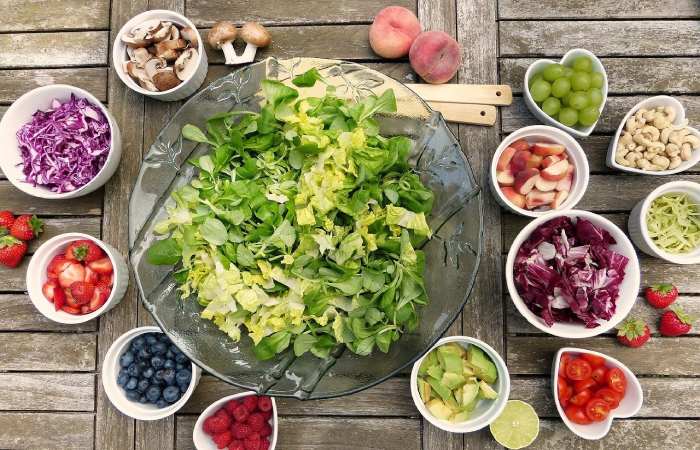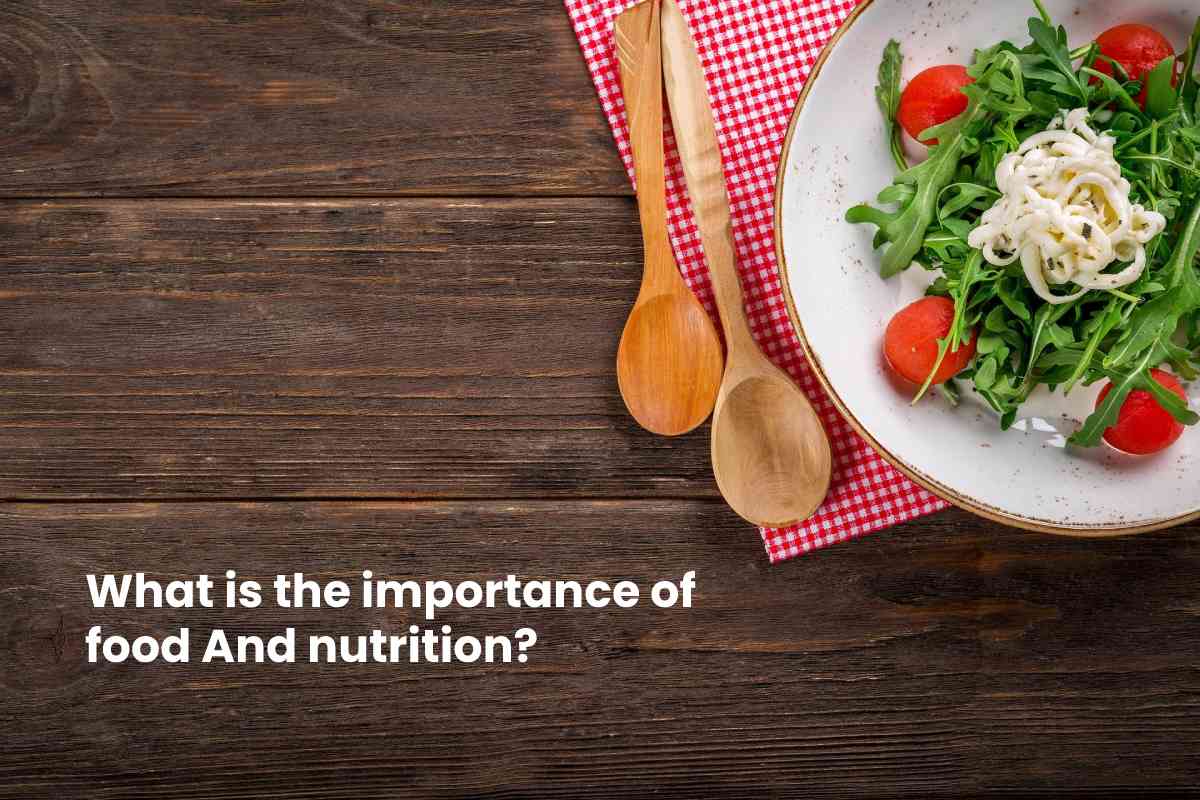Food and nutrition are two processes that are interconnected, but they are different in many aspects. This article will describe the difference between food and nutrition and their importance.
Table of Contents
WHAT IS FOOD, AND WHAT IS NUTRITION?
Definition of food: Food is the process by which we obtain, prepare and eat food, obtaining the nutrients that our body needs and that are essential for the fullness of our human life.
Definition of Nutrition: Nutrition is a set of processes involved in obtaining, assimilating, and metabolism nutrients by the body.
The variance between food and nutrition is that the former is a voluntary process that which human beings choose which foods to consume. The latter is an involuntary process by which the selected foods change after eating them.
IMPORTANCE OF FOOD
Now that we know the meaning of food and nutrition, why is it important? Since food is the vehicle through which the body receives nutrients and energy that each person needs, the proper selection of these foods and their consumption in the necessary proportions will make the nutrition process successful.
Based on the above, a correct diet should be:
Complete: that it has all the nutrients, including in all meals the three essential food groups: cereals and tubers, vegetables and fruits, and legumes and foods of animal origin.
Balanced: that is to say that the nutrients keep the adequate proportions and are sufficient to cover the nutritional needs.
Safe: that its habitual consumption does not imply health risks, that it is consumed in moderation and does not provide excessive amounts of any component or nutrient.
Adequate: that meets the needs of all nutrients so that they have good nutrition, a healthy weight, and, in the case of children, that they grow and develop correctly.
They varied: Different foods from each group include one meal to another.
Adequate is consistent with the tastes and culture of those who consume it, adjusting to their economic resources.

IMPORTANCE OF NUTRITION
Nutrition’s primary function is to transform and extract the necessary nutrients from our food. The body generates the energy required to maintain the organism and carry out its tasks through this process. Likewise, it produces the essential elements for obtaining, assimilating, and metabolism nutrients by the organism.
What are the types of nutrition?
When hearing about types of nutrition, we may think of the different kinds of food that exist; for this reason, it is essential to know the differences between the two concepts mentioned above. In the case of nutrition, two types of food are clarified below:
Autotrophic Nutrition refers to the type of nutrition carried out by living beings that produce their food. Autotrophic beings fend for themselves to get the necessary nutrients for their body.
Heterotrophic nutrition is the process of getting nutrients through food intake. It is the nutrition of animals and humans. In the case of heterotrophic beings, they need other organisms to obtain nutrients.
A hypocaloric diet controls the calories consumed at the end of the day.
A protein diet consists of basing the diet on those high in protein products.
Detox diet: it is a type of diet based on the body’s detoxification after copious meals, providing one day a week in which the body only feeds on liquids.
What is the function of nutrition?
Nutrition allows for strengthening the immune system, which translates into contracting fewer diseases and, therefore, enjoying good health.
Nutrition provides nutrients to our body that help us meet our needs, prevent diseases related to food, regulate metabolic processes and maintain body structures.
Good nutrition is essential to maintaining good health. For this, it is necessary to have in our body all the essential nutrients: water, vitamins, minerals, carbohydrates, proteins, and fats.
How is the profession specialized in nutrition?
The professional who is specific in nutrition is the nutritionist. They are experts in all the concepts mention above, and they know the nutrients necessary for each organism ideally, taking into account the needs of each one.
To do this, many people choose to take online nutrition courses that provide them with the necessary knowledge to analyze the needs of each individual and, through that, plan food and nutrition programs. These courses are perfect for some of the health branch FP that currently exists to obtain an official degree.
What is the nutritional or food pyramid?
Food pyramid
In the nutritional pyramid, food begins in the order of importance of intake.
The nutritional or food pyramid is a pyramid-shaped chart that represents the essential foods that an individual should consume in any diet simply and dynamically. In addition, it recommends integrating other healthy habits such as physical exercise and hydration into the diet.
Within the pyramid, foods begin in the order of importance of intake:
basis. Cereal-based foods include, such as pasta, bread, rice, flour, and also tubers. These foods have a high content of carbohydrates and are essential because they provide energy to the body.
Second level. Fruits and vegetables are usually a great source of carbohydrates, vitamins, and fiber. It is optional to consume at least five servings of this group per day.
Third level. Its daily consumption is recommend and, more occasionally, red meats. Dairy products, nuts, eggs, legumes, and white meats such as chicken and fish are include. These foods are ironic in vitamins, proteins, minerals, and fats.
Tip. The sugars present in products that it is advisable to consume in moderation dose located because they contain trans fats, few nutrients, and high caloric content. Here are the sausages, cakes, sweets, and butter.
Enteral and parenteral nutrition
There are different ways of ingesting food and the natural way, which is done orally, especially for patients with special dietary or nutritional needs: enteral and parental.
Enteral Nutrition: food is place directly into the digestive tract.
Parenteral Nutrition: food is administer directly into the vein.
Conclusion
Healthy eating is not limited to food alone, but in addition to food, it also refers to how much, and how often food is consume and must be about each person’s nutritional and energy needs.

